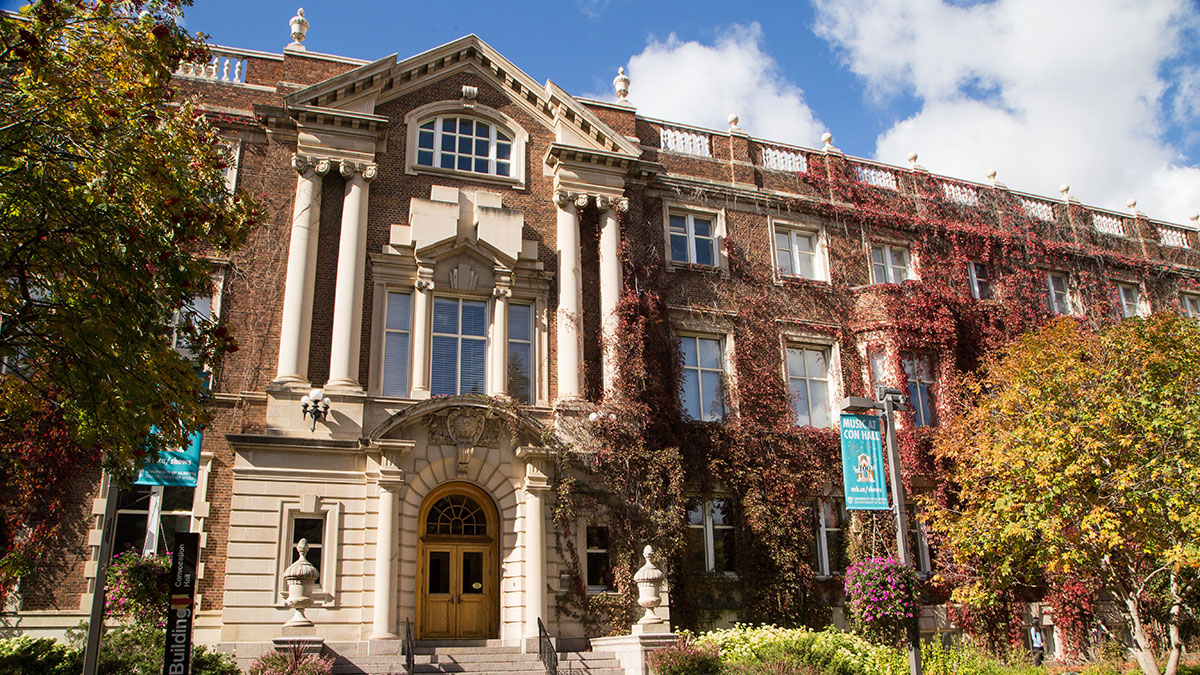 Joshua Storie
Joshua StorieI regret many things about my BA. I wish I had taken different courses. I wish I had started essays earlier. I wish I had built better relationships with profs.
But these are things I would discover after first year. First year was equally frightening as it was exhilarating. I chose courses superficially, based on course descriptions. But the BA’s basic requirements structure a student’s education whether they know it or not.
The current requirements feature six credits of Junior English, six credits of a Language Other than English, six credits of Science, and 18 credits of Breadth and Diversity to offer a well-rounded introductory arts education and the ability for students to experience the faculty’s many offerings in order to choose a major and minor. Breadth and Diversity is organized roughly according to discipline and topic such as the study of creative processes, cultures, and social systems.
Personally, I agree with old school profs who say that all BA programs should follow a unified introductory curriculum aligned with the history of ideas starting with Plato. But the current BA requirements at least allow for a sufficient introduction.
Students encounter a lack of structure when they enrol in an English degree. After Junior English, students can choose to enrol in whichever 200 or 300-level courses they like, regardless of the topics in their 100-level courses. After students take six credits of 200-level courses, and six credits of 300-level courses, they can enrol in 400-level seminars. Students must take courses pertaining to certain topics and historical periods, but there is no streamline. Students travel some bizarre paths. It’s possible to bypass difficult 200-level courses, but avoiding them disadvantages students in upper-level courses. It’s even possible to earn an English degree at the University of Alberta without being required to read Shakespeare.
One professor described this system as a buffet — when you finally get to something you want, it’s stale. Of course, 120 credits at an institution as good as ours in any degree program will produce good, intelligent, tax-paying citizens. But it is very unfortunate that many English students are unable to make the most out of such a talented department.
The new BA requirements structure to be discussed at a Town Hall meeting on Friday, Feb. 5 seems to resemble something like our disorganized English degree. In the proposal draft document available through the Faculty of Arts website, the rubric on pages eight and nine seems to offer little change to the current requirements: rather than taking six Science credits, students can take six non-Arts credits. And students would no longer be required to declare a minor. A line on page seven reads, to the discomfort of many, “removal of all current BA requirements.”
“All the proposal says to people is that we’re taking away everything and that it’s going to be ‘Lord of the Flies’,” said Allen Ball, Associate Dean (Teaching and Learning, Student Programs). “It’s so complex what we’re doing that it’s difficult to do it all in one shot.”
Ball says that the first step to renewing the BA would be to remove basic requirements, which would be replaced with “thematic” pathways to be designed by the Faculty of Arts, departments and Undergraduate Student Services. Ball promises to elaborate at the Town Hall meeting on what he and his colleagues intend these pathways to be since they are vague at this point, but what’s known thus far is that they’re going to some extent be inspired by five attributes championed by the Faculty of Arts in 2014 as a “valuable means of understanding undergraduate programs.” The five attributes are “Analysis and Interpretation,” “Research, Creation and Inquiry,” “Communication and Culture,” “Global Citizenship,” “Lifelong, Adaptive, and Engaged Learning.”
The first attempt to design basic requirements according to these attributes was a failure. On pages 90-92 of the proposal appendices, a rubric features serious problems, the most significant of which is the many classes crudely characterized as fulfilling the “Global Citizenship” attribute. Such a model would have offered students an awfully confusing and incomplete experience, and the Faculty rejected it.
Ball says the Faculty has learned from previous mistakes and that the proposed pathways are only supposed to “echo the sentiment of the attributes” rather than be strictly defined by the attributes.
While a thorough assessment of the proposed changes can’t be made until students, faculty and administrators better understand the proposed pathways, such a change to the basic requirements, at least to me, seems unnecessary. It might be that I major in a department in which “the regulations encompassed in the existing core requirements favour some disciplines” (like English) “over others,” but except for the most astute students, first years need strict boundaries in order to learn fundamental concepts. The current BA requirements allow students to experiment within the boundaries, whereas the pathways seem to impose onto new students the responsibility of choice when they don’t possess the appropriate knowledge of university education to choose in the first place.
Some of the proposed changes are good, such as the elimination of the necessity of declaring a minor. And the English department would definitely do good by adopting the conceptual model of pathways to guide students who’ve declared a major.
However, what’s regrettable is the enthusiasm with which committee members in the Faculty of Arts advocate for the proposed changes as every effort to promote “student choice” denies future students, who wish to be forced to read Shakespeare, the fundamentals-based education that the committee members themselves received years ago.




